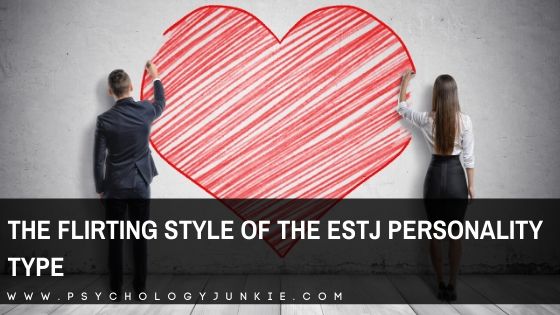Here’s How Much of a Risk-Taker You Are, Based On Your Personality Type
Do you consider yourself a spontaneous risk-taker or a careful, cautious planner? Find out which types are more ready to risk it and which types are more security-seeking.
Not sure what your personality type is? Take our new personality questionnaire here. Or you can take the official MBTI® here.

Table of contents
Estimated reading time: 8 minutes
Your Myers-Briggs® Personality Type and Risk-Taking

What Are the Sources for This Information?
According to the MBTI® Manual, typologists Jean M. Kummerow and Allan L. Hammer did a study combining type dynamics with the Strong Interest Inventory. They examined the 16 personality types in groups separated by perceiving function (SJs, SPs, NJs, NPs) and were able to see the risk-taking preferences of each group.
ENFPs, ENTPs, INFPs, INTPs and Risk-Taking
(Keep Scrolling for the Other Types!)
Intuitive Perceivers scored as the highest risk-takers of all the types. This comes as no surprise considering NPs enjoy exploring new, untested theories and possibilities. Unlike sensing types who like to have a groundwork of pre-established facts to rely on, NPs enjoy “jumping into possibilities” without having to spend a lot of time figuring out if something like this has been done before. In fact, if a project or idea has been done before that can be a deterrent to them. These types want to discover ideas that have never been thought of before and opportunities that have never been experienced. They are drawn to the novel and original far more than the tested and established. In fact, this tends to play out in their career choices. Many NP types are stimulated by taking less-secure job positions if there is a higher reward.
Why this is good: Because NPs are so inherently wired to explore possibilities, they wind up finding innovations and groundbreaking ideas that other types might miss in their need for caution. They are usually able to consider many new, unusual theories, projects, and endeavors simultaneously without getting weighed down by anxiety or over-planning.
How this can backfire: If NPs don’t get in touch with their introverted processes (thinking or feeling), they can rush into so many ideas and projects that they don’t pause to consider which ones are the most logical or most in line with their values. It’s important for all types, but especially NPs, to take a moment and pause and consider their priorities, values, and principles before moving forward. This way they can avoid floundering in a sea of unfinished projects and unlimited alternatives.
Find out more about the Intuitive-Perceiving (NP) Personality Types: The Unique Intelligence of ENFP, ENTP, INFP and INTP Personality Types
INFJs, INTJs, ENFJs, and ENTJs and Risk-Taking
Intuitive-Judgers are more calculated at risk-taking and not as spontaneous as their NP “cousins”. They scored much lower on risk-taking on the Strong Interest Inventory. Intuitive Judgers need to have an internal vision of where they are going before they pursue a possibility. Once they’ve developed that vision then they will backtrack and create a strategy for arriving there. If there are risks required they’re usually more than happy to take them on, but they need the vision and end-goal first. INJs especially like to have time to “chart-the-course” for where they are going to go. When they have a course and a clear vision they actually enjoy taking long-term risks and pursuing unconventional paths. In fact, they prefer to pursue new pathways rather than follow along in a more routine or traditional lifestyle or career. ENJs will usually make faster decisions than INJs because they dislike haivng things undecided.
Why this is good: Because NJs take extra time to prepare they are usually very strategic and have contingency plans in place. They also are stimulated by new ideas and unventured possibilities so this can lead them down innovative or transformational pathways.
How this can backfire: NJs can become so sure of a specific vision or path that they close their minds to precautions and details that might get in the way of its realization. They tend to be analytical when deciding on a pursuit, but because they focus more on the big picture than the details, those details can eventually trip them up. It can help for them to get some sensing input on their ideas. If you’re an NJ reading this and you have a trusted sensing consultant or friend you can talk to, definitely give it a shot. They can sometimes open your eyes to important details you might be overlooking.
Find out more about Intuitive-Judging (NJ) personality types: The Unique Mental Powers of the INFJ, INTJ, ENFJ, and ENTJ Personality Types
ESFPs, ESTPs, ISFPs, ISTPs and Risk-Taking
Sensing-Perceivers have a fondness for risk-taking, especially in the immediate context. However, they do like to have a certain amount of security when it comes to their home life and the people that are important to them. They like having a “home base” whether it’s an actual home, long-term friendships, a relationship, etc,. that they can return to at the end of the day (or week, or month). Extraverted sensing types scan their environment for interesting and novel experiences they can jump into right away. For example, they might be walking along the beach and see an opportunity to go hang-gliding and instantly get in line for the experience. They are spontaneous and quick to respond to sudden changes and developments. They get stimulated by challenges and enjoy having many options and alternatives to consider.
Why this is good: Because SPs are quick to think on their feet, they tend to keep a steady head during a crisis. They’re also good at scanning their environment for resources and solutions. Unlike some other types who might panic over a challenge, SPs find themselves stimulated and invigorated by it.
How this can backfire: Because SPs are always looking around for new experiences and enjoyments, they can sometimes become scattered and move from project to project without completing anything. This tends to play out in them jumping from job to job or passion to passion without finding long-term contentment. If they fail to inwardly analyze the opportunities they embark on then they can make poor choices that fail in the long-term. This is where it’s important for them to get in touch with their introverted functions (either thinking or feeling) to figure out whether what they’re doing is logical or has lasting value. Sometimes it means allowing themselves to be bored because it’s the most reasonable thing to do or it’s the thing most in line with their values.
Find out more about Sensing-Perceiver personality types: The Unique Intelligence of ESFP, ESTP, ISFP, and ISTP Personality Types
ISFJs, ISTJs, ESFJs, ESTJs, and Risk-Taking
Sensing-Judgers are the personality types that are the least willing to take risks. They enjoy having consistency and structure in their lives and they tend to act only after they have carefully analyzed all the details and feel totally prepared. SJs need time to gather their memories and experiences as well as look at the information and think it all over. This doesn’t mean that SJs never take risks, however. They just need to be sure they’ve given each option a lot of thought and consideration before acting on the choices they have.
Why this is good: Because SJs are so careful and considerate when making decisions they tend to be thoroughly prepared for whatever consequences unfold because of that decision. They are prepared, practical, and grounded when it comes to their choices and this means that they are less likely to take risks that turn out badly or backfire on them.
How this can backfire: In certain cases SJ types can be too risk-averse. For example, an SJ office worker might hate his job but be unwilling to venture into another career field because of the risk of failure. SJs can also get so stuck in their comfort zone that they miss out on new opportunities that would bring them joy.
Find out more about Sensing-Judgers: The Unique Intelligence of the ISFJ, ISTJ, ESFJ, and ESTJ Personality Types
References:
The MBTI® Manual: A Guide to the Development and Use of the Myers-Briggs Type Indicator® Instrument – Third Edition by Isabel Briggs Myers, Mary H. McCaulley, Naomi L. Quenk, and Allen L. Hammer
Type Talk at Work, by Otto Kroeger with Janet M. Thuesen and Hile Rutledge. Dell Publishing, 2002
What Are Your Thoughts?
Do you consider yourself risk-prone or risk-averse? Let us know in the comments!
Find out more about your personality type in our eBooks, Discovering You: Unlocking the Power of Personality Type, The INFJ – Understanding the Mystic, The INTJ – Understanding the Strategist, and The INFP – Understanding the Dreamer. You can also connect with me via Facebook, Instagram, or Twitter!

Other Articles You’ll Enjoy:
Your Myers-Briggs® Personality Type and Your Body Language
Here’s What You Wish People Understood About You, Based On Your Personality Type
Here’s What Embarrasses You, Based On Your Personality Type
Here’s the Science Behind Your Myers-Briggs® Personality Type
About Me:

My name is Susan Storm, and I’m an MBTI® practitioner and all-out psychology lover. I’ve been studying Jungian typology as well as developmental & childhood psychology for over ten years. Along with blogging about personality type, I love taking care of my 5 children and staying up late reading Kierkegaard. I’m an INFJ personality type. Follow me on Facebook, Twitter, or Pinterest to find out more about typology!
This article contains affiliate links.

Subscribe to Our Newsletter

Want to discover more about personality type? Get the inside scoop with Susan Storm on all things typological, along with special subscriber freebies, and discounts on new eBooks and courses! Join our newsletter today!












I Am an ENTP-A, and this assessment is spot on for me except no one ever referred to me as an Introvert before.
That’s because an ENTP is an extravert. Your probably referring to the “introverted processes” mentioned in the article, which is not the same as being introverted.
I’m also an ENTP and am defya risk-taker!
As an INFP I find I’m aok to take risks provided the ‘payoff’ is worth it. Paragliding for the heck of it? Nah.. Scuba dive because you can experience a close up shark encounter? Yep!
(INFPs, INTPs) are not primarily intuitives,